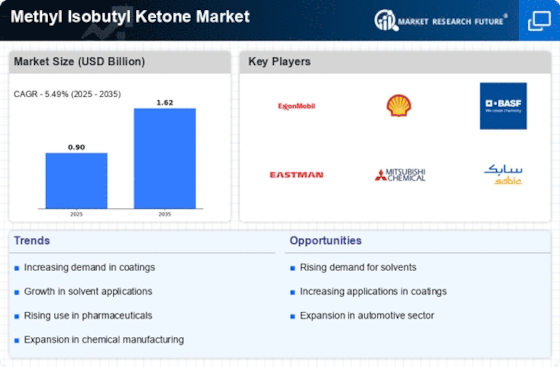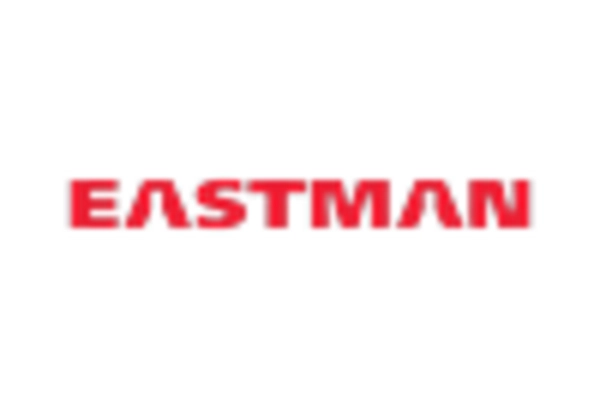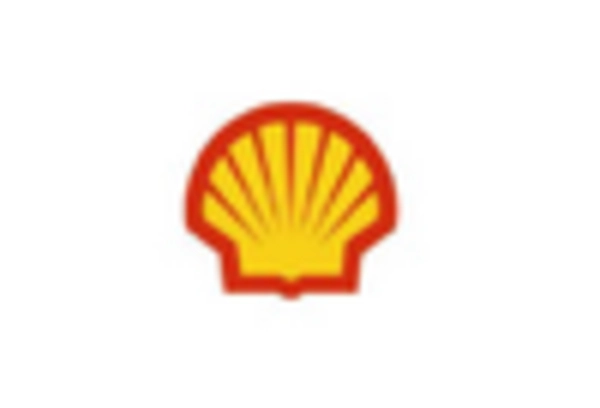Market Analysis
In-depth Analysis of Methyl Isobutyl Ketone Market Industry Landscape
The market dynamics of Methyl Isobutyl Ketone (MIBK) encompass a multitude of factors that shape its supply, demand, and pricing. MIBK, a solvent widely used in various industries such as paints and coatings, pharmaceuticals, and rubber processing, is influenced by both macroeconomic trends and industry-specific dynamics. Firstly, the overall economic conditions play a crucial role in determining the demand for MIBK. During periods of economic growth, there tends to be increased construction activity, leading to higher demand for paints and coatings, which in turn boosts the demand for MIBK. Conversely, during economic downturns, demand may decrease as construction projects are postponed or scaled back.
As per our analysis, some of the prominent market factors and trends identified in the global methyl isobutyl ketone market include rising demand for MIBK solvent for coatings in automobile and electronics industry, increasing demand for adhesives, paints, and coatings on account of growing construction spending
Furthermore, regulatory factors significantly impact the MIBK market dynamics. Environmental regulations aimed at reducing volatile organic compound (VOC) emissions often drive the demand for low-VOC solvents like MIBK. Stringent regulations mandating the use of environmentally friendly solvents in various applications propel manufacturers to seek alternatives to traditional solvents, thereby influencing the demand for MIBK.
Additionally, technological advancements and innovations play a pivotal role in shaping the market dynamics of MIBK. Continuous research and development efforts aimed at improving the production process, enhancing product quality, and reducing costs contribute to market growth. Moreover, innovations in application technologies and formulations expand the scope of MIBK's usage across various industries, further driving its demand.
Supply dynamics also significantly impact the MIBK market. The availability of key raw materials such as acetone and isobutylene, which are used in the production of MIBK, affects its production capacity and pricing. Any disruptions in the supply chain of these raw materials can lead to fluctuations in MIBK prices and availability. Additionally, the presence of key manufacturers and their production capacities influence the overall supply scenario of MIBK in the market.
Moreover, the competitive landscape plays a crucial role in shaping market dynamics. The presence of established players with extensive distribution networks and brand recognition often creates barriers to entry for new entrants. However, technological advancements and innovation can provide opportunities for new players to enter the market with differentiated products or production processes, intensifying competition.
Global market trends and trade dynamics also impact the MIBK market. Shifts in consumer preferences, emerging markets, and trade policies influence the demand-supply balance and pricing of MIBK. Moreover, currency fluctuations and geopolitical tensions can affect the cost of raw materials and transportation, thereby impacting the overall cost structure of MIBK.
Lastly, environmental and sustainability considerations are increasingly influencing market dynamics. With growing awareness about the environmental impact of chemical products, there is a rising demand for sustainable and eco-friendly alternatives. Manufacturers are under pressure to adopt greener production processes and offer products with lower environmental footprints, which may drive investments in bio-based or renewable sources of MIBK.



















Leave a Comment